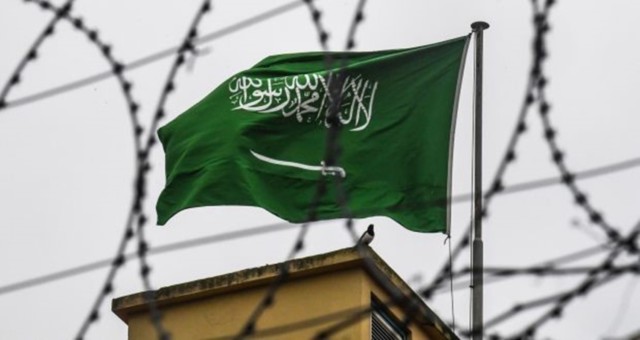
International human rights organizations have called on the member states of the United Nations to support joint action in the current session of the Human Rights Council of the international organization to oblige Saudi Arabia to its international obligations in the field of human rights.
The organizations indicated in a joint statement that on March 12, 2022, the Saudi authorities executed 81 men in the largest mass execution recorded in recent decades.
At least 41 belong to the Shiite minority, which has long suffered from the Saudi authorities’ repression. This incident was the latest witness to the authorities’ use of the death penalty to muzzle dissent in the Eastern Province.
The Saudi authorities carried out these executions under various lawsuits, including those concerned with crimes of “terrorism” and others with murder, armed robbery, and arms smuggling.
A number of those executed were convicted of charges such as “disrupting the social fabric and weakening national cohesion” and “inciting demonstrations and sit-ins,” which refer to actions protected by rights to freedom of expression and the right to peaceful assembly and association.
Positive steps resulted from the joint statements made at the 40th, 42nd and 45th sessions of the Human Rights Council by Iceland, Australia and Denmark, respectively.
These include the conditional release of several women human rights defenders and the commutation of some death sentences imposed on people convicted of crimes allegedly committed when they were minors, including Ali al-Nimr, Daoud al-Marhoon and Abdullah al-Zahir, following a royal order.
However, the Saudi authorities did not address several worrying issues raised in these statements. Since the last joint statement in September 2020, the human rights situation in Saudi Arabia has deteriorated.
The organizations have documented several human rights violations committed by the Saudi authorities.
These include arbitrary arrests concerning the peaceful exercise of fundamental rights and the arbitrary use of travel bans against activists who have been released or completed their prison sentences. Their families have also been banned.
They also include deliberate health and administrative neglect, which led to deaths in prison, detention of migrant workers and their families in inhumane conditions, and lengthy prison sentences for several peaceful critics after unfair trials.
After the Saudi authorities claimed that they had stopped using the death penalty against children, the many legal loopholes in this announcement became clear.
Including what the Saudi authorities employed on March 7, 2022, to re-death the death sentence against Abdullah Al-Hwaiti for crimes he allegedly committed when he was 14 years old.
And that followed a trial in which several violations of fair trial guarantees, such as reliance on “confessions,” Abdullah Al-Hwaiti and his co-defendants told the court that they were extracted from them by torture.
The authorities still allow guardians to file lawsuits against them, and the new personal status system that was put in place in March 2022 legalizes discrimination against women, including the guardianship of men over women, and gives men the authority to marry women, and after marriage obliges women to obey their husbands.
As for the well-known female human rights defenders who were released, they are still under heavy restrictions, including those restricting their freedoms of expression and movement.
The large number of activists who have been arbitrarily arrested or banned from travelling in Saudi Arabia also bear witness to the refusal of the Saudi authorities to allow the growth of civil society.
Human rights organizations emphasized that progress towards respecting rights and freedoms in Saudi Arabia will only occur with sustained international pressure on the authorities.
They stressed that it is necessary for the Council to increase its monitoring of the situation, and to call on all countries to work at the fiftieth session of the United Nations Human Rights Council, onwards, to ensure continued monitoring of the human rights situation in Saudi Arabia and to publish details.
The signatories:
ALQST for Human Rights
Amnesty International
Gulf Center for Human Rights
Human Rights Watch